Reino Unido/ 29 de mayo de 2018/Por: Gordon Brown/Fuente: https://www.nacion.com/
En la superficie, el analfabetismo masivo parece un mal fácil de erradicar. Para lograrlo no se necesitan avances tecnológicos ni descubrimientos científicos. Con financiación para buenos profesores y escuelas podemos educar a todos los niños. Solo es necesaria voluntad política.
Y, sin embargo, la educación universal ha sido un objetivo elusivo, a pesar de ser uno que todo el planeta comparte. En la actualidad, 750 millones de adultos –dos tercios de ellos mujeres– son analfabetos y 260 millones de niños no van a la escuela.
La educación es un derecho básico codificado en la Declaración Universal de Derechos Humanos de 1948 y la Convención sobre los Derechos del Niño de 1989. Se consagró más aún en la Declaración Mundial sobre Educación para Todos de 1990 en la cumbre de Jomtien, Tailandia, y luego en el Foro de Educación Mundial del 2000 en Dakar, Senegal. Alcanzar la educación primaria universal fue una de las Metas de Desarrollo del Milenio de las Naciones Unidas para el 2015 y la educación universal se ha incluido en las Metas de Desarrollo Sostenibles para el 2030.
Sin embargo, a pesar de estos compromisos, la comunidad internacional todavía debe cumplir con los niños del mundo. Además de los que no tienen escolarización alguna, en la actualidad 500 millones de niños no reciben más que educación primaria, que a menudo es insuficiente. Y para el año 2030 (el plazo que nos hemos dado como planeta para proporcionar educación primaria y secundaria universales), se estima que 800 millones de personas entrarán en la adultez sin las calificaciones necesarias para la fuerza laboral moderna. Muchas de ellas serán analfabetas.
En muchas regiones del mundo los estándares educacionales están muy por debajo de lo necesario. Por ejemplo, se estima que en África los resultados educativos están unos 100 años por detrás de un típico país de altos ingresos. Como resultado, existe una brecha creciente entre la mitad del mundo con acceso a una educación decente y la otra mitad que no lo tiene. Mientras una generación anterior se las ingenió para llegar a la luna, la nuestra ha fracasado en proveer un aula a todos los niños aquí en la Tierra.
Es tiempo de una innovación valiente e innovadora. Para tal fin, la Comisión Internacional de Oportunidades de Financiamiento de la Educación Global, que presido, ha lanzado el Centro Internacional de Financiamiento Educativo (Iffed, por sus siglas en inglés) como una declaración de guerra al analfabetismo masivo y los males del trabajo infantil, el matrimonio infantil y la discriminación contra las niñas. En tiempos en que se discrimina y niega a millones de niñas el acceso a su derecho básico a la escuela, la educación universal es la lucha de los derechos civiles de nuestra generación.
La Comisión de Educación está librando esta guerra con las soluciones de financiamiento más innovadoras que pudimos idear. El Iffed está en campaña para movilizar fondos públicos y privados, fomentando la cooperación internacional y encabezando una asociación multinacional para hacer que la educación sea accesible para todos.
El Iffed ha llevado la educación universal al frente del plan del Banco Mundial de elevar los fondos para el desarrollo de los “miles de millones a los billones”. Además de multiplicar las donaciones, apoya a los países que se han comprometido a reformar sus sistemas educativos, asegurando así que cada dólar apunte a resultados concretos. Con el tiempo, el Iffed podría aumentar la cantidad de aulas a 20 millones para los niños del mundo, al facilitar la mayor inversión en educación de la historia y motivar a los países en desarrollo a elevar el gasto para ello.
El Banco Mundial, el Banco de Desarrollo Interamericano, el Banco de Desarrollo Africano, el Banco de Desarrollo Asiático y el Banco Europeo para la Reconstrucción y el Desarrollo se han comprometido a usar cada uno al Iffed para apalancar las donaciones. Y todos estos esfuerzos complementarán el trabajo de la Alianza Global para la Educación, el fondo Education Cannot Wait y las agencias de la ONU que tocan el área de la educación: la Unesco, la Unicef, la UCAH y la Acnur.
Al pedir a los gobiernos que eleven sus propias inversiones en educación como condición para recibir fondos de donantes, el Iffed promete crear el equivalente a $4 de recursos educativos adicionales por cada $1 donado. Nuestro principal objetivo es centrarnos en los países africanos, asiáticos y latinoamericanos de ingresos medio-bajos donde reside la mayoría de los niños sin acceso a la escolaridad (muchos de ellos refugiados). En esos países viven cerca de 700 millones de niños: los millones que faltan en el medio.
Lamentablemente, menos del 1 % de los fondos de los bancos de desarrollo se destinan a educación en los países africanos y asiáticos de ingresos medios. Como resultado, estos países se encuentran ante un dilema insostenible: dejar de enviar a los niños a la escuela o endeudarse a tasas de interés muy altas y arriesgarse a acumular deudas impagables.
Si miramos hacia el futuro, es tiempo de que los países donantes den un paso y respondan a nuestras peticiones de garantías financieras para el Iffed. Actualmente estamos en conversaciones con 20 posibles contribuyentes, subrayando el mensaje de que, si logramos educación universal, el PIB per cápita de los países más pobres será casi un 70 % superior para el 2050 que si continúan las tendencias actuales. Los índices de pobreza extrema se reducirán en un tercio. Las bajas de mortalidad, medidas en años de vida adicionales, serán casi equivalentes a lo que se esperaría si el mundo eliminara el VIH y la malaria.
No menos importante es que los jóvenes estarán mejor preparados para el mercado laboral del futuro, posicionados para convertirse en la próxima generación de innovadores, profesores y líderes, y con la oportunidad de hacer realidad todo su potencial.
Gracias a estas soluciones de financiamiento innovadoras, lo que parecía imposible se ha vuelto claramente realizable. Lo que parecía fuera de nuestro alcance ahora lo está. Hagamos que esta generación sea la primera de la historia en asegurar que todos los niños puedan acceder a la educación que merecen como un derecho fundamental.
Gordon Brown, ex primer ministro y chancellor of the Exchequer (cargo equivalente al ministro de Hacienda) del Reino Unido, es enviado especial de las Naciones Unidas para Educación Global y jefe de la Comisión Internacional de Oportunidades de Financiamiento de la Educación Global. Preside la Junta Asesora de la Catalyst Foundation. © Project Syndicate 1995–2018
Fuente de la Noticia:
https://www.nacion.com/opinion/columnistas/el-imperativo-de-mantener-el-impulso-hacia-la/MQHABTBOS5CEBDATP7VE7BTFEU/story/
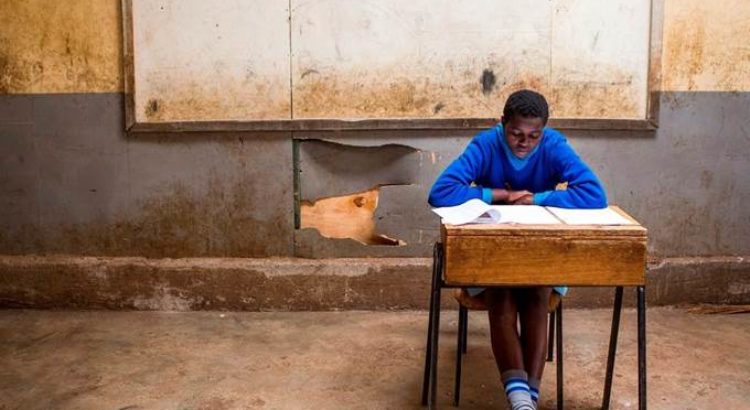
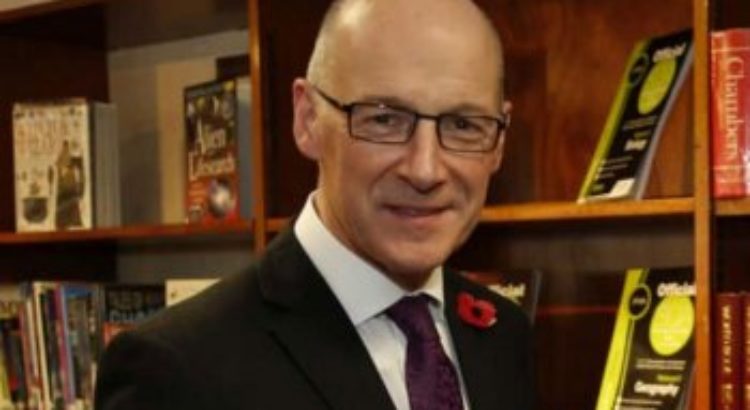




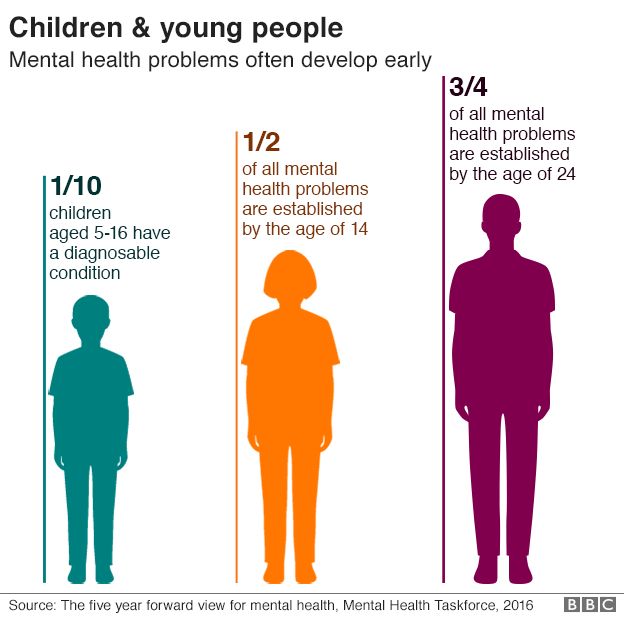





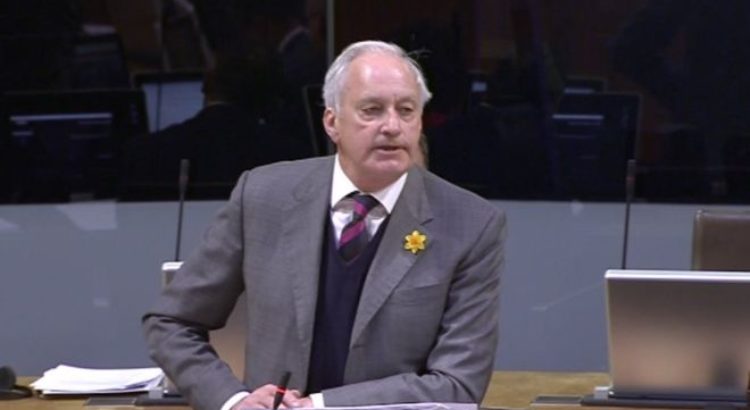
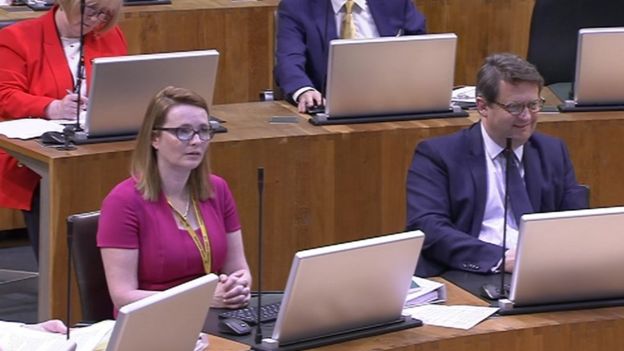





 Users Today : 64
Users Today : 64 Total Users : 35404331
Total Users : 35404331 Views Today : 79
Views Today : 79 Total views : 3333853
Total views : 3333853